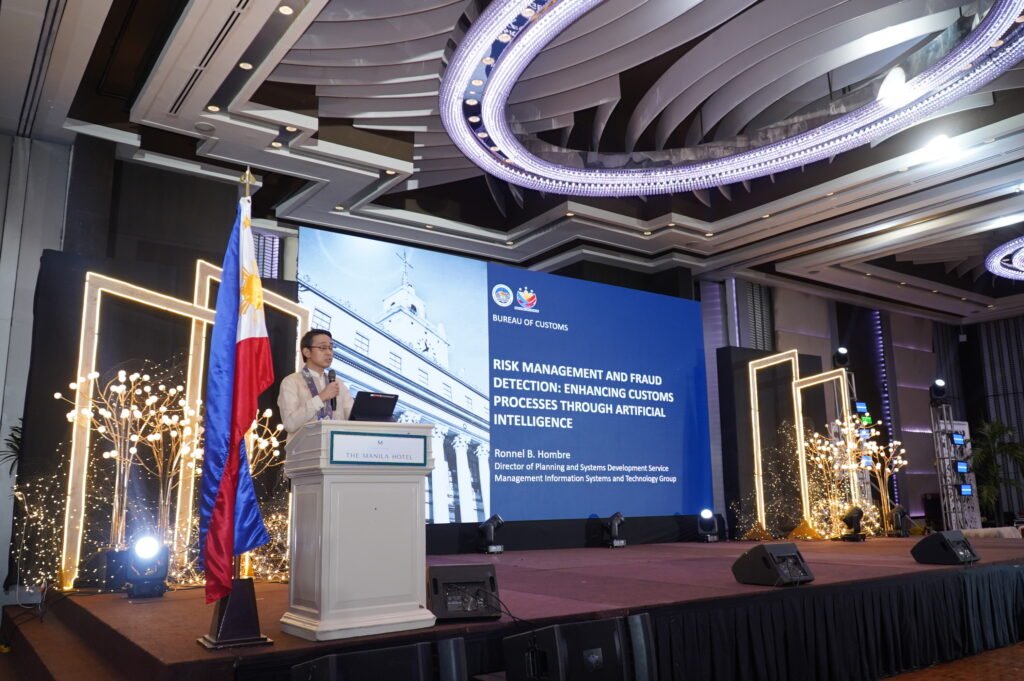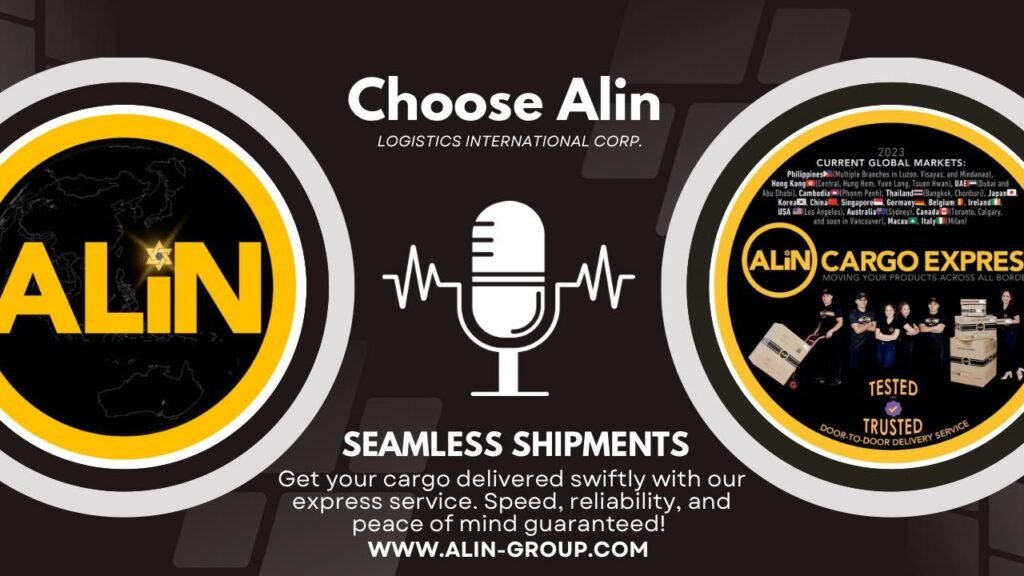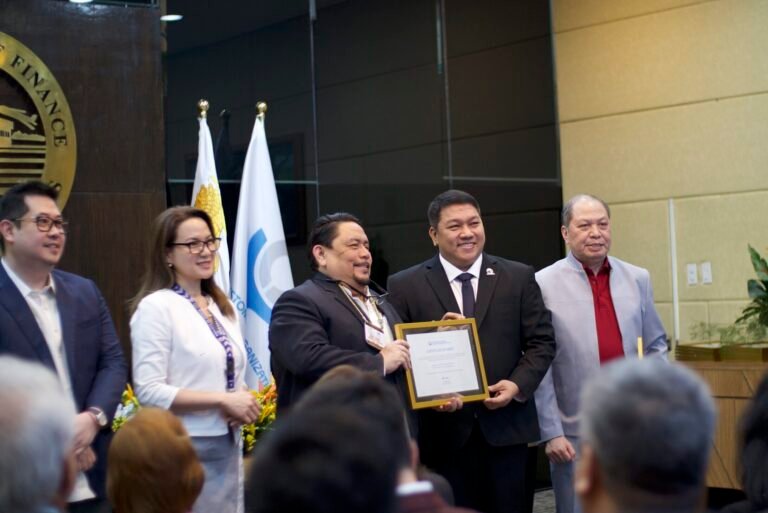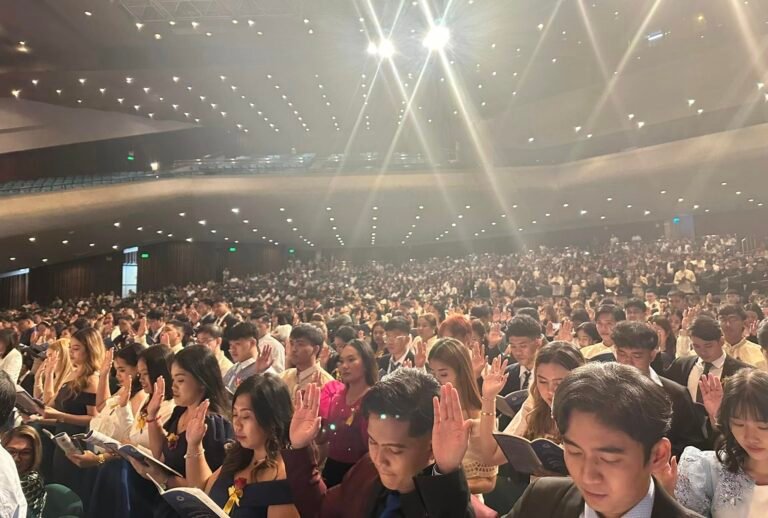Manila, Philippines – AI and Big Data are no longer just futuristic concepts; they are now transforming customs operations. Hon. Ronnel B. Hombre, Director of the Planning and Systems Development Service at MISTG, delivered a compelling keynote at the 32nd National Convention of the Philippine Chamber of Customs Brokers, Inc. (PCCBI). His speech focused on how Artificial Intelligence (AI) and Big Data can enhance risk management and improve fraud detection in customs operations.
The event, held at the Philippine International Convention Center, brought together over 3,000 customs brokers, industry stakeholders, and government officials, both in person and online. Director Hombre highlighted the importance of using advanced technologies like Artificial Intelligence (AI), Big Data, and machine learning to modernize and strengthen the Philippine Customs Bureau’s ability to fight smuggling, fraud, and non-compliance. These technologies also improve operational efficiency and help protect public revenue.
Subscribe to the MyCCBI365 newsletter
AI and Big Data for Smuggling Prevention
Director Hombre emphasized the increasing importance of big data and data analytics in enhancing customs risk management. He shared several examples of how data mining and intelligence gathering have transformed customs enforcement. These include:
Data Mining for Intelligence: By analyzing large amounts of financial and tax data, customs can detect suspicious transactions and improve compliance with regulations.
Fighting Smuggling and Tax Evasion: Data analysis helps identify patterns and trends that may indicate illegal trade activities or attempts to evade taxes.
Protecting Intellectual Property: Advanced data analysis, including internet data mining, is used to track and stop IP violations and counterfeit goods.
Improving Revenue Collection: Customs can analyze import/export data to adjust pricing strategies and enhance public revenue collection performance.
Director Hombre also mentioned the concept of a data lake, a centralized platform that consolidates all customs data into one system, ensuring accurate and transparent decision-making.
AI in Customs Risk Management
Shifting focus to AI and machine learning, Director Hombre shared how these technologies are improving customs operations, making enforcement more effective and processes more efficient:
AI-Powered X-ray Imaging: AI models are now used to analyze X-ray images more accurately, helping customs detect illegal goods and contraband.
Enhanced Risk Profiling: AI automates the process of assessing risk, allowing customs to segment shipments and clients for more targeted inspections based on risk profiles.
Automating Customs Inspections: AI-driven feedback loops from inspection results continually refine risk management models, improving detection accuracy and customs profiling.
Chatbots and AI Robots: AI-powered chatbots handle online public inquiries, while robots are being tested at airports and ports to assist travelers and customs officers, enhancing efficiency.
Cross-Platform Cyber Patrols: AI improves cybersecurity by scanning online platforms, helping detect fraud and prevent cyber threats that target the customs system.
AI-Driven Automation: AI is automating repetitive tasks like market price research and customs clearance, reducing manual work and increasing efficiency.
Customs Enforcement and Digital Innovation
Director Hombre wrapped up his speech by stressing the need for ongoing technological progress in the customs sector. He referenced a World Customs Organization (WCO) and WTO paper that highlighted how AI, data analytics, and automation can improve cross-border trade. The paper suggests that these technologies are essential for creating a more efficient, secure, and transparent global trade environment.
“By adopting these technologies, we not only improve our operations’ efficiency but also strengthen the integrity of our systems, ensuring a more transparent and compliant trade environment in the Philippines and worldwide,” Hombre concluded.
Closing Remarks and Industry Response
The session was well-received by convention attendees, many of whom shared their excitement about how AI and big data can improve customs processes. Key stakeholders from both the public and private sectors praised the initiative, recognizing that these technological advancements are essential for keeping the Philippines competitive and secure in global trade. The Philippine Chamber of Customs Brokers, Inc. also announced that future events will focus on digital transformation in customs, with upcoming seminars on AI, machine learning, and advanced data analytics.









